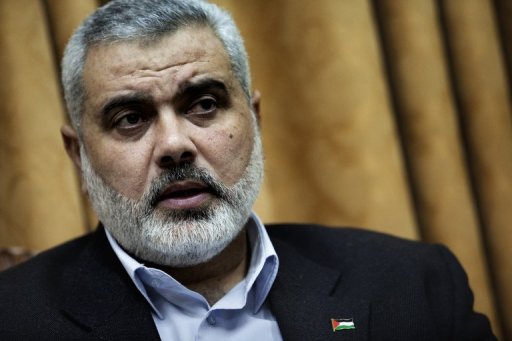
(AFP PHOTO / KARAM AL-MASRI)
AFP- International disarmament experts began Wednesday their mission to catalogue Syria’s arsenal of chemical weapons under a deal that will see the arms turned over for destruction by mid-2014.
The 19-member team from The Hague-based Organisation for the Prohibition of Chemical Weapons (OPCW) arrived in Damascus Tuesday to implement UN Security Council Resolution 2118 ordering the elimination of Syria’s chemical arms.
A day earlier, Syria’s opposition warned of a “humanitarian disaster” in the Damascus suburb of Moadamiyet al-Sham, one of the areas reportedly targeted in an August 21 sarin attack that killed hundreds of people.
And Syria’s information minister insisted that President Bashar al-Assad would stay in office and could run for re-election next year.
Assad’s departure is a key demand of the opposition, who insist it must be a pillar of a mooted Geneva peace conference.
The disarmament team includes 19 OPCW inspectors and 14 UN staffers who drove to a five-star Damascus hotel in a 20-vehicle UN convoy from Beirut.
They set up a logistics base after arriving, but it was not immediately clear when they would begin visiting sites. No movement had been seen at their hotel by early Wednesday afternoon.
“In the coming days, their efforts are expected to focus on verifying information provided by the Syrian authorities and the initial planning phase of helping the country destroy its chemical weapons production facilities,” a UN statement said.
This should be completed by November 1, it added.
The task is huge, as Syria’s arsenal is believed to include more than 1,000 tonnes of sarin, mustard gas and other banned chemicals stored at an estimated 45 sites across the war-torn country.
The mission is the first in OPCW history to take place in a country wracked by civil war.
The OPCW group arrived as a team of UN experts left after probing seven alleged gas attacks for a report expected to be released in late October.
The UN team visited Syria in August, and later confirmed that sarin was used in the August 21 attacks that prompted the United States to threaten military action against Damascus.
Instead, the United States and Russia hammered out a deal now enshrined in the UN resolution under which Syria will turn over its chemical arms.
Assad has said he will comply with the resolution and Syria has turned over documents detailing its chemical arsenal.
The OPCW says it has no reason to doubt the information, which its inspectors will cross-check in Syria.
Top on the inspection list will be production sites due to be disabled by late October or early November.
“According to the OPCW-UN Security Council deadline, the entire chemical weapons stockpile must be eliminated in the first half of next year,” said the UN statement.
Resolution 2118 also calls for a peace conference as soon as possible in Geneva, and UN chief Ban Ki-moon set a target date of mid-November.
However, the prospects for such a conference remain uncertain, with Syria insisting Assad’s departure is not up for discussion, despite it being a key opposition demand.
“Syria is staying put: the state, the nation, the people and the president. This is theSyrians’ choice,” Information Minister Omran al-Zohbi said on Tuesday.
“All the people call for President Bashar al-Assad to be president of this state, whatever the opposition, the Americans and the traitors say.”
Meanwhile, the opposition National Coalition accused the regime of waging a “systematic campaign to starve and displace” residents from the rebel-held Damascus suburb of Moadamiyet al-Sham.
It said the suburb southwest of the city had been under siege for months, leading to the starvation of several residents, and it urged the international community to open “safe humanitarian corridors.”
More than 115,000 people have been killed in Syria’s 30-month conflict, according to the Syrian Observatory for Human Rights.
Syria’s Prime Minister Wael al-Halqi said Wednesday the war had also caused losses of $16.5 billion (12.2 billion euros) to the country’s private and public sectors.
The conflict has forced more than two million Syrians to flee, most of them finding refuge in neighbouring Lebanon, Turkey, Jordan and Iraq.
The UN refugee agency UNHCR said Wednesday that 17 Western nations, including the United States, France and Australia, had agreed to accept a combined total of 10,000 of the refugees.


